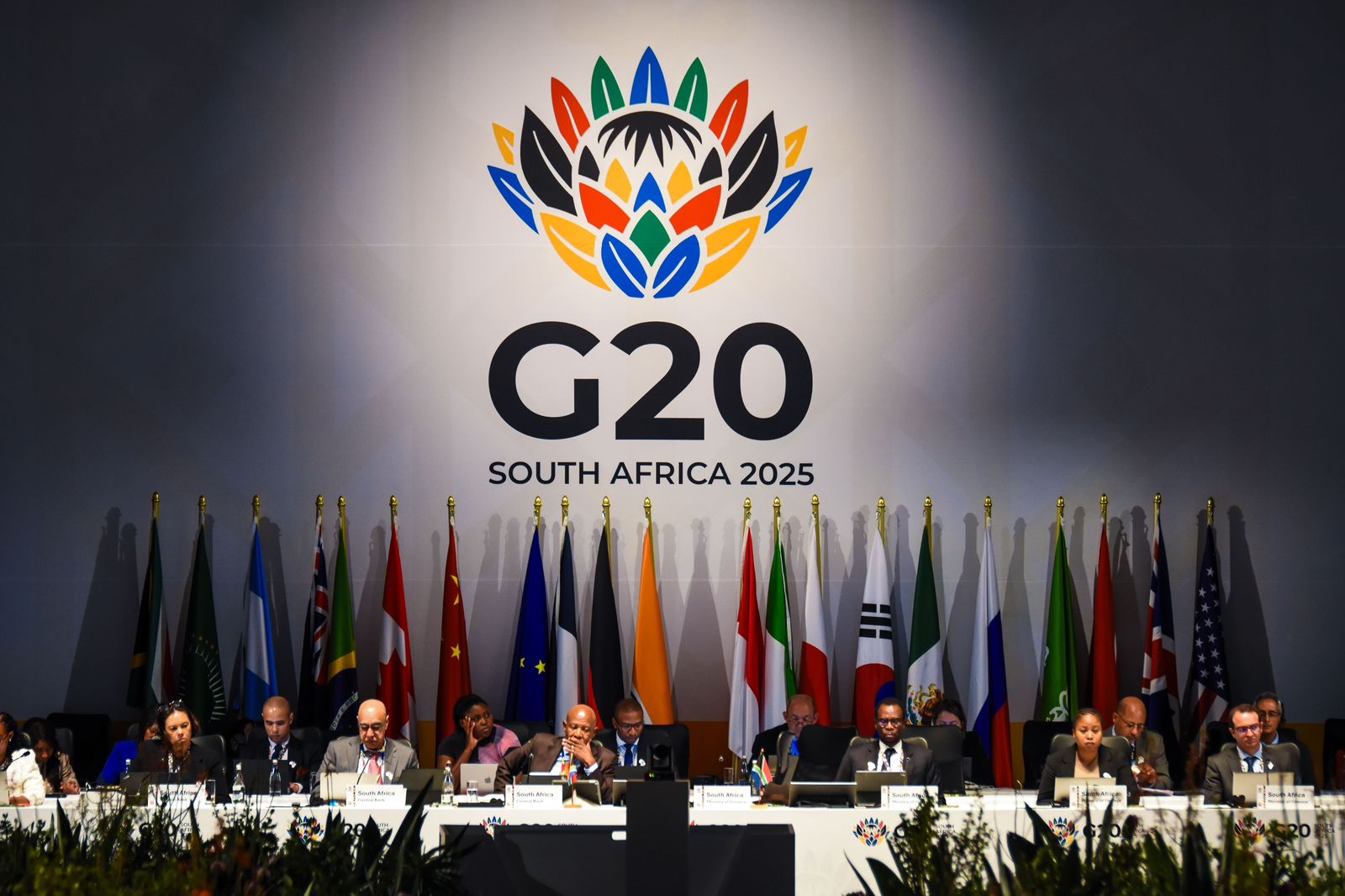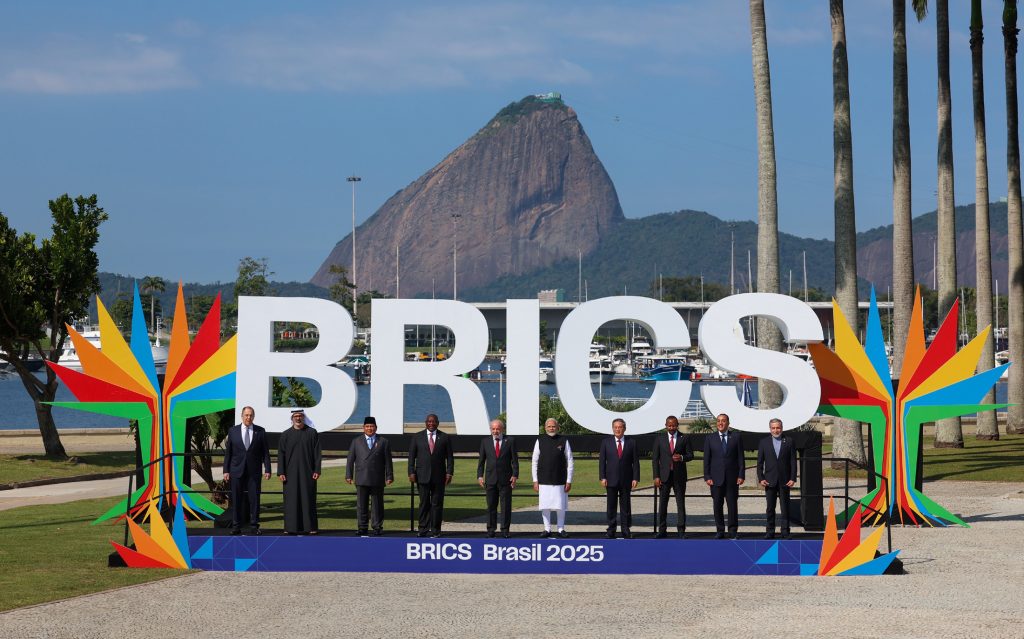For the second time this year, U.S. Treasury Secretary Scott Bessent has skipped a major G20 finance ministerial, igniting debates about the future of the forum
Durban G20 Meeting Overshadowed by U.S. Absence, BRICS Tensions, and Global Economic Uncertainty

The G20 finance chiefs’ meeting in Durban this week is mired in geopolitical drama and economic anxiety as the world’s largest economy remains notably absent from the table.
The gathering, hosted for the first time on African soil under South Africa’s presidency, faces mounting questions about the group’s effectiveness amid escalating tariff threats, strained relations between Washington and BRICS nations, and intensifying global economic headwinds.
U.S. No-Show Raises Questions
For the second time this year, U.S. Treasury Secretary Scott Bessent has skipped a major G20 finance ministerial, igniting debates about the future of the forum.
His absence, already felt during February’s Cape Town meeting, leaves the United States, the world’s biggest economy, unrepresented at a critical juncture. Many see this as a sign of waning U.S. engagement and foreshadowing plans for a leaner, “back to basics” G20 when the U.S. assumes the rotating presidency next year.
READ MORE: BRICS Pushes for New World Order with Southern Leadership
“It’s problematic not to have the world’s largest economy represented at the table, at least at a senior political level. It raises questions about the G20’s long-term viability,” said Josh Lipsky, chair of international economics at the Atlantic Council.
Trump’s Tariff Barrage and BRICS Backlash
President Donald Trump’s recently implemented baseline 10% tariff on all U.S. imports with much steeper levies (up to 200% on some items) looms large over the G20 agenda. Many of these punitive tariffs target BRICS countries, now eight strong within the G20 including host South Africa, who have collectively denounced the measures as “unilateral” and “damaging to global growth”.

The prospect of further U.S. trade barriers on BRICS members—and Trump’s threats against nations pursuing alternatives to the U.S. dollar have stirred fears of rival global blocs and raised doubts about the G20’s relevance in a shifting geopolitical order.
A Divided Forum in “Turbulent Times”
The Durban meeting convenes with the global economy in flux. Africa, the host continent, is facing ballooning external debt now estimated at $800 billion, or 45% of GDP, in sub-Saharan Africa, with a record $1.3 trillion across the continent.
Traditional funding sources are drying up: Chinese lending, once a pillar of African infrastructure financing, has slowed sharply, creating an $80 billion financing gap and increasing pressure on local economies.
READ MORE: BRICS Must Accept More Members To Become A True Catalyst For A New, Better World Order
U.S. and European grants, which make up a quarter of regional external funding, are also under threat as Washington suspends foreign aid and European countries redirect funds to defense. “Africa is in a difficult space,” commented Lumkile Mondi, a South African political economist, noting that debt and slow growth are making the continent less relevant in current geoeconomic calculations.
Climate issues, a central theme for South Africa’s G20 presidency, have also run into headwinds, with the U.S. retreating from key financial stability and climate policy groups, pausing forward movement on unified action around climate-related risks.
Host Challenges and Afro-Global Priorities
South Africa, under the theme “Solidarity, Equality, Sustainability,” had hoped to use its G20 presidency to pressure wealthy nations on climate finance and to bridge the enduring trust deficit between the global North and South. Instead, it finds itself navigating aid cuts, tariff wars, and competing global blocs that directly undermine those ambitions.

Pretoria faces the dual challenge of championing African needs debt relief, infrastructure, and more equitable access to global capital while managing the fallout from superpower rivalry and disengagement by key players. The National Treasury has held back on comments about specific meeting goals, but officials hope to issue the first Communique under South Africa’s G20 presidency by the meeting’s close.
What’s at Stake for the G20?
With Bessent’s absence and U.S.-BRICS tensions looming, some analysts warn that the G20’s future as the “premier forum for global economic cooperation” may be at risk. Others argue South Africa’s hosting is a chance to recalibrate priorities toward development, inclusion, and resilience for both Africa and the wider Global South.
“Policy uncertainty is the biggest theme at this point in time,” said Fundi Tshazibana, Deputy Governor of the South African Reserve Bank.
As the Durban meeting unfolds, the struggle to maintain multilateral cooperation amid rising protectionism and economic nationalism may determine not only the G20’s immediate relevance but the broader direction of global economic governance in the years ahead.
Subscribe to Our Newsletter
Keep in touch with our news & offers
Thank you for subscribing to the newsletter.
Oops. Something went wrong. Please try again later.










